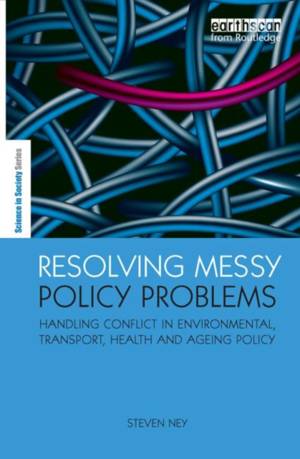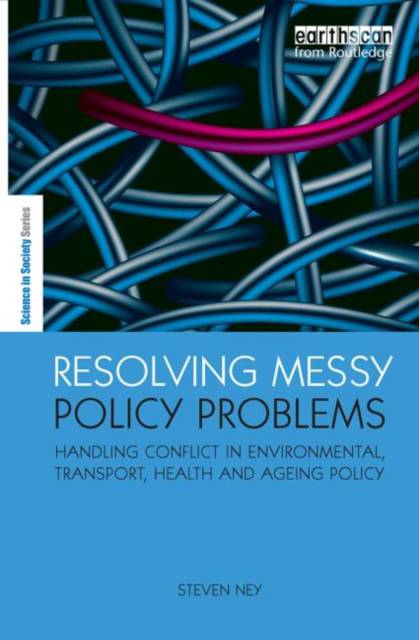
- Afhalen na 1 uur in een winkel met voorraad
- Gratis thuislevering in België vanaf € 30
- Ruim aanbod met 7 miljoen producten
- Afhalen na 1 uur in een winkel met voorraad
- Gratis thuislevering in België vanaf € 30
- Ruim aanbod met 7 miljoen producten
Resolving Messy Policy Problems
Handling Conflict in Environmental, Transport, Health and Ageing Policy
Steven NeyOmschrijving
Our lives increasingly take place in ever more complex and interconnected networks that blur the boundaries we have traditionally used to define our social and political spaces. Accordingly, the policy problems that governments are called upon to deal with have become less clear-cut and far messier. This is particularly the case with climate change, environmental policy, transport, health and ageing - all areas in which the tried-and-tested linear policy solutions are increasingly inadequate or failing. What makes messy policy problems particularly uncomfortable for policy makers is that science and scientific knowledge have themselves become sources of uncertainty and ambiguity. Indeed what is to count as a 'rational solution' is itself now the subject of considerable debate and controversy.
This book focuses on the intractable conflict that characterises policy debate about messy issues. The author first develops a framework for analysing these conflicts and then applies the conceptual framework to four very different policy issues: the environment - focussing on climate change - as well as transport, ageing and health. Using evidence from Europe, North America and the Asia-Pacific, the book compares how policy actors construct contending narratives in order to make sense of, and deal with, messy challenges. In the final section the author discusses the implications of the analysis for collective learning and adaptation processes. The aim is to contribute to a more refined understanding of policy-making in the face of uncertainty and, most importantly, to provide practical methods for critical reflection on policy and to point to sustainable adaptation pathways and learning mechanisms for policy formulation.
Specificaties
Betrokkenen
- Auteur(s):
- Uitgeverij:
Inhoud
- Aantal bladzijden:
- 224
- Taal:
- Engels
- Reeks:
Eigenschappen
- Productcode (EAN):
- 9780415850353
- Verschijningsdatum:
- 12/12/2013
- Uitvoering:
- Paperback
- Formaat:
- Trade paperback (VS)
- Afmetingen:
- 156 mm x 234 mm
- Gewicht:
- 322 g

Alleen bij Standaard Boekhandel
Beoordelingen
We publiceren alleen reviews die voldoen aan de voorwaarden voor reviews. Bekijk onze voorwaarden voor reviews.









